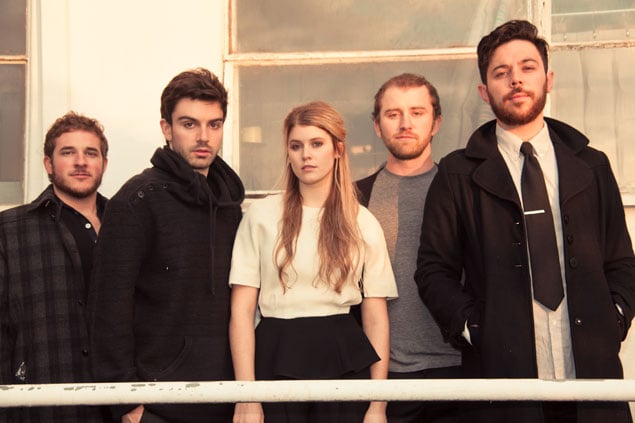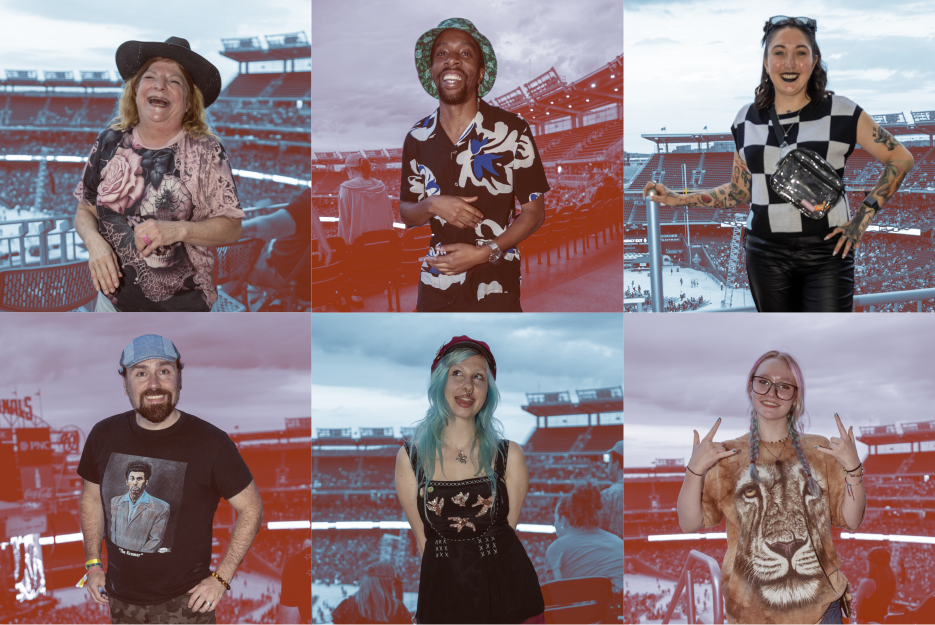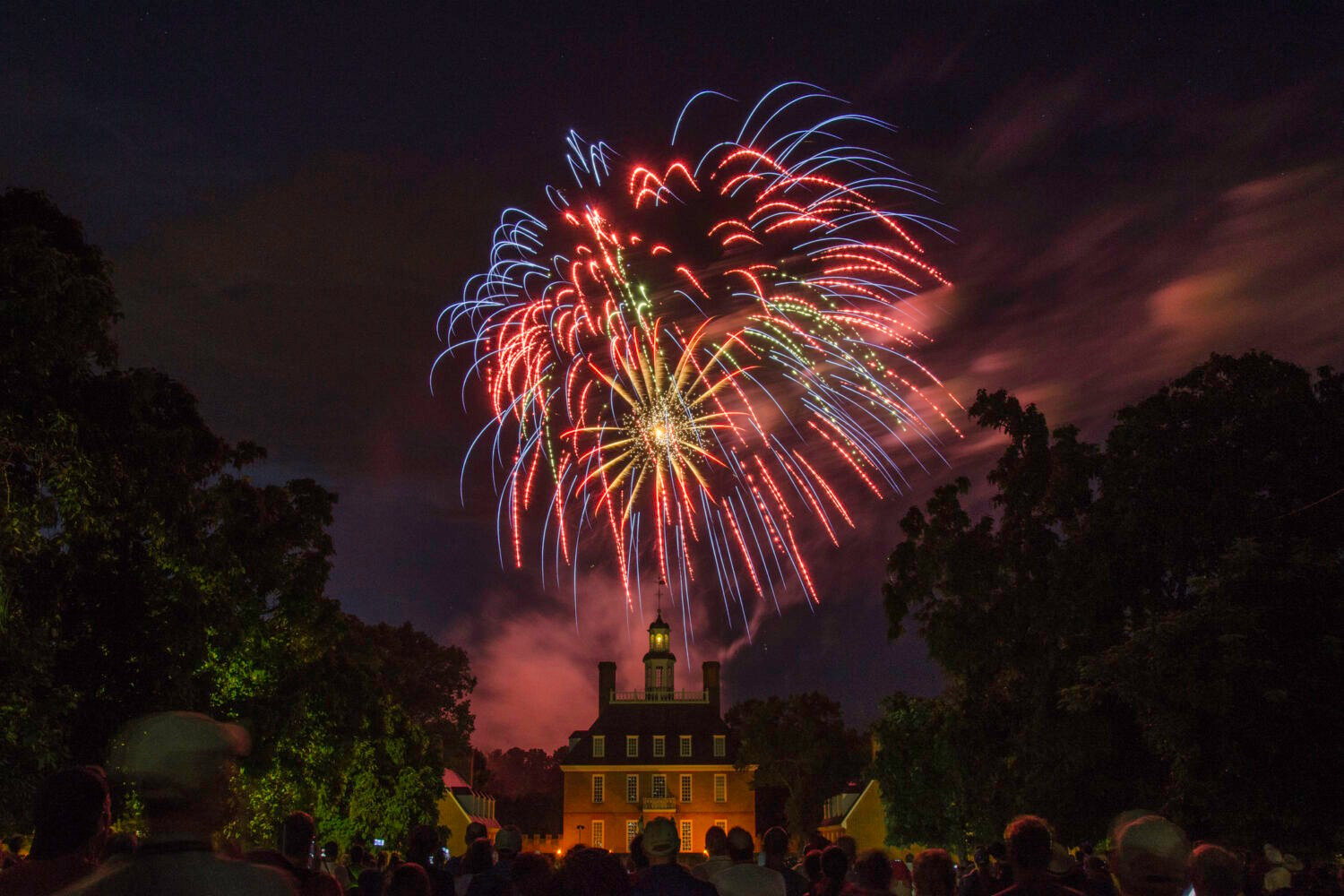The first single off Milo Greene’s self-titled debut album, “1957,” opens with the
haunting strum of interspersed electric and acoustic guitars, then quickly reveals
the LA-based quintet’s most vital weapon: their rich vocal arrangements. Four of the
five members in the group are considered lead singers, and duties are shared among
them, but it’s the voice of
Marlana Sheetz, the band’s sole female, that often rings out most vibrantly, creating a sharp contrast
with the deeper, hushed harmonies of her bandmates
Robbie Arnett,
Graham Fink, and
Andrew Heringer. Percussionist
Curtis Marrero adds intensity with a mesmerizing drumline that vibrates throughout the track. The
rest of Milo Greene’s new album follows suit. The name pays homage to a fictitious
booking manager the band members created years ago to pitch their solo projects to
music venues. The days of making up promoters are gone, though—now, Milo Greene are
kicking off their own tours and playing the late-night talk show circuit. We got ahold
of Sheetz as the band approached Dallas for a concert, and she filled us in on the
tour and the group’s forthcoming show at Rock & Roll Hotel this Tuesday.
There is no Milo Greene—can you talk a little bit about the story behind your band’s
name?
Before we came together, everybody was in different bands, and we used Milo Greene
as a fake name to promote those bands. It was essentially a fake manager to promote
ourselves. Then when we all quit our old bands and became one band, we decided to
pay tribute to the fake booking agent we were using.
The band is made up of singers, but everyone plays a bunch of different instruments.
What did you play on the debut album?
I did bass and keyboards and guitar and percussion. There are a lot of weird noises
on there that we all made together, too. And vocals, obviously—we did a lot of that,
a lot of vocal instrumentation. All of us playing different instruments wasn’t anything
we’d intended to do. The way that happened was that we had written and recorded the
songs first, and then we had to figure out how to record them live after. So when
we were in rehearsal space, we had to figure out who would play what instrument and
what worked best. Sometimes it wouldn’t work when one of us was on one instrument,
so we’d switch, and it just worked out that way.
Did you come into the band with a specific role in mind? Was there something in particular
you wanted to add?
I just wanted to be a part of a group of singers, because that’s first and foremost
my number one instrument. I wanted to sing with other people, and that was pretty
much the foundation of the band—we wanted to base it on lots of harmonies and big
vocals, and I think that’s what I brought to the table. And there’s obviously the
fact that my voice is in a different register than everyone else’s—but I think we
all come together in a really nice way. It sounds exactly how I wanted it.
The album, and your voice in particular, has a folksy quality to it. Were you inspired
by folk at all?
I personally wasn’t. It’s kind of funny that we get that comparison a lot, but it’s
not on my radar at all. I listen to stuff I grew up with, kind of all over the map—I
like mainstream, I like Sade, I like ’N Sync. I like a lot of different things, but
folk is never something I grew up listening to a lot of. The most folk I ever listened
to was Fleetwood Mac, but that’s about as close as it gets for me.
Is there a song that sums up the band best, or that you feel attached to?
For sure—they’re all our babies, because we spent two and a half years working on
them, so every single second feels a part of all of us. But I feel like the first
track on the record was a huge step in the right direction and finding our voice.
It was one song a lot of us were really excited about, and I think it was the last
song written out of all the songs on there. We spent a lot of time on it, and we’re
still very excited about the other work, but we love that song.
You guys also have shorter 40-second tracks on the record that are more ambience-based
snippets. What was the decision behind putting those in?
The reason behind those was because we wanted the album to be a whole piece—from the
first song all the way to the end. Something that everyone could listen to all the
way until the end without having it stop and having it feel very continuous. That’s
part of the process on the instrumentals—sometimes, they’ll take you out of one world
and one song and put you into another, or completely give your ears a break. I think
it helps to take a story and make the whole thing cohesive. It’s nice to not hear
voices sometimes.
What’s it like being the sole female vocalist in a guy-heavy band?
It’s definitely a guy-heavy band, but with a lot of femininity in it, as well. You
can count on the fact that male musicians are very sensitive and have a little femininity.
In some ways, it’s not really much different from traveling with ladies, I guess [laughs].
A little less drama—that’s why I like it.
What about when you guys are writing the music? Do you ever bump heads?
When we write, it’s different—every song comes in its own way. It’s a collaborative
process, whether one person writes the song, or two people, or three people. At some
point in the process, we all have our hands on the song and give it our creative input.
It’s a collaborative effort, and we all respect one another’s opinions—it’s hard to
find people you can work well with, and fortunately, we do work really well together.
Other people seem to think you work really well together, too—you guys are gaining
lots of recognition. Was there a moment when you knew kind of knew this would be successful?
Yeah, definitely—I would have to say it was during the first recording session that
we did as an experiment to see what would happen, and we wrote and recorded “Autumn
Tree.” We left that first recording session, and all of us kept that song on replay
for a few weeks and it just resonated with us. I remember playing it for my mom, and
she said to me that she felt in her gut that this was what was going to happen and
that it was the best thing I’d done so far and that she had a good feeling. And being
a mommy’s girl, I had to trust my mom.
What about more recently, as you’ve become more popular? What shows have stuck out
or been crucially important to you?
I definitely think being on Letterman and Conan was monumental—after growing up and
watching those shows, to actually be one is a completely mind-blowing experience.
It’s sort of hard to explain, just because being there and doing it is so 100 percent
different than watching it on TV.
TV is kind of smoke and mirrors in a lot of ways, and when you watch something like
those shows for years and years you get to see what’s going on and how they make those
shows and all the things that are involved in making it the production it is. So to
be part of it and being backstage in that green room and seeing how fast everyone
there is working. . . . You’re there all day long and you’re waiting for your moment,
and you go out and it happens and it feels like it’s just a second. And all of a sudden
it’s over and it’s done with, and you kind of take a step back and go, “Did that just
happen?” And you also get to see how much makeup everyone is wearing. It’s a lot of
makeup [laughs]. When you see people in person, you’re kind of shocked.
Anything you’re looking forward to when you come to DC, or that fans should look forward
to when you get here?
We spent a lot of time there the last time we came, and I’d love to do a Segway tour—I
saw someone people doing last time, and I wanted to do it so badly. But I think if
anybody is going to come see us, they can expect to have a good time and get real
sweaty. That’s what it’s all about: getting sweaty.
Milo Greene play the Rock & Roll Hotel this Tuesday, October 23. Tickets ($15) are
available via the venue’s website.

















